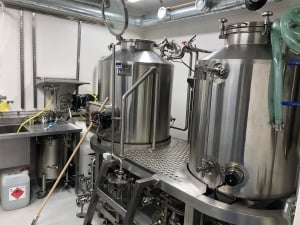Table of Contents
ToggleIntroduction
Welcome to the world of professional brewing equipment, where craftsmanship meets technology to create exceptional beers. In this article, we will explore the importance of professional brewing equipment, its key components, different types available, factors to consider when choosing equipment, top manufacturers, common challenges, and future trends in the industry. Whether you’re a microbrewery, craft brewery, or an industrial-scale operation, having the right brewing equipment is crucial for success. So, let’s dive in and discover the fascinating world of professional brewing!
What is Professional Brewing Equipment?
Professional brewing equipment refers to specialized machinery and tools designed for commercial beer production. Unlike homebrewing setups, professional brewing equipment is built to handle large-scale production, ensuring consistency, quality, and efficiency. It consists of various components that work together in the brewing process, including brewing kettles, fermentation vessels, cooling and heating systems, filtration equipment, and packaging systems.
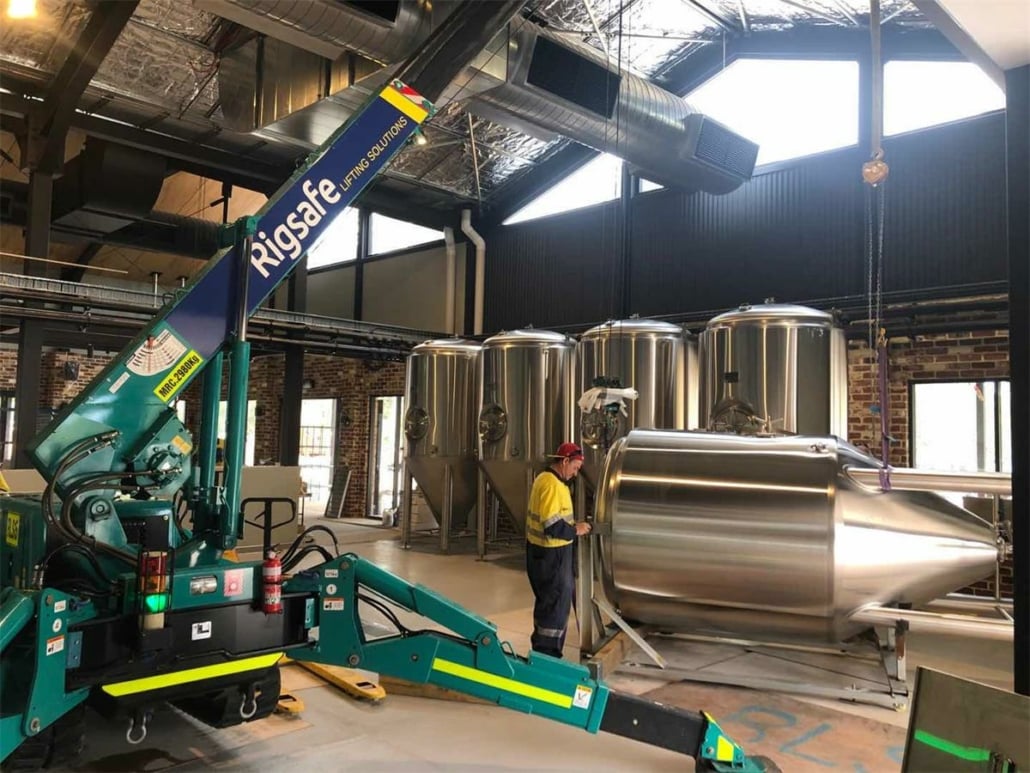
Importance of Professional Brewing Equipment
Consistency and Quality
One of the primary reasons professional brewing equipment is essential is its ability to deliver consistent and high-quality beer. Consistency is crucial for breweries to build a loyal customer base and establish their brand identity. Professional equipment ensures precise control over brewing parameters such as temperature, pressure, and timing, resulting in consistent flavors, aromas, and overall beer quality.
Efficiency and Productivity
Efficiency and productivity are vital factors for any commercial operation. Professional brewing equipment is designed to optimize brewing processes, minimizing downtime and maximizing output. With advanced features like automated temperature control, programmable recipes, and efficient cleaning systems, breweries can streamline their production and reduce manual labor, increasing overall efficiency.
Safety and Compliance
Breweries must adhere to strict safety and compliance standards. Professional brewing equipment is designed and manufactured to meet these requirements, ensuring the safety of workers and consumers. From robust stainless steel construction to safety features like pressure relief valves and emergency shut-off systems, professional equipment provides a secure brewing environment.
Key Components of Professional Brewing Equipment
Brewing Kettles and Mash Tuns
Brewing kettles and mash tuns are the heart of any brewing operation. Brewing kettles are used for boiling the wort and adding hops, while mash tuns are used for mashing grains and converting starches into fermentable sugars. These vessels are available in various sizes and configurations, allowing brewers to accommodate different batch sizes and brewing techniques.
Fermentation Vessels
Fermentation vessels are where the magic happens. These specialized tanks provide an ideal environment for yeast to convert sugars into alcohol and carbon dioxide, creating beer. Fermentation vessels come in different shapes and sizes, including conical fermenters, cylindroconical tanks, and open-top fermenters. They often have built-in cooling jackets or external temperature control systems to regulate fermentation temperatures accurately.
Cooling and Heating Systems
Maintaining precise temperatures during brewing and fermentation is crucial. Cooling and heating systems, such as glycol chillers and steam generators, play a vital role in controlling temperature throughout the brewing process. These systems ensure that the wort is cooled rapidly after boiling, and fermentation temperatures are maintained within the desired range.
Filtration and Clarification Equipment
Filtration and clarification equipment is used to remove solids, impurities, and unwanted particles from the beer before packaging. This equipment includes plate filters, diatomaceous earth filters, centrifuges, and in-line filtration systems. By achieving clarity and stability, breweries can enhance the appearance and shelf life of their beers.
Packaging and Dispensing Systems
Packaging and dispensing systems are responsible for filling beer into bottles, cans, or kegs, ready for distribution and consumption. These systems can include automated bottling lines, canning machines, labeling machines, and keg filling stations. Efficient packaging and dispensing systems contribute to a smooth production flow and consistent product quality.
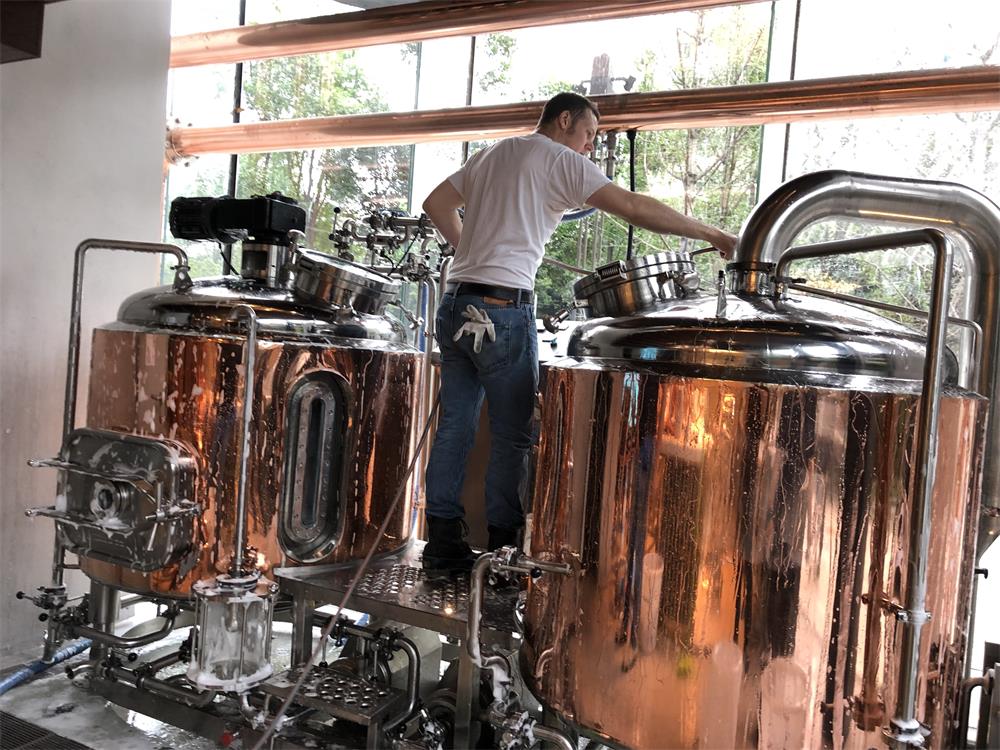
Types of Professional Brewing Equipment
Microbrewery Equipment
Microbrewery equipment is designed for small-scale operations, typically producing up to 15,000 barrels of beer per year. These systems are compact, versatile, and often used by brewpubs, taprooms, and small independent breweries. Microbrewery equipment allows brewers to experiment with different beer styles and flavors while maintaining control over the brewing process.
Craft Brewery Equipment
Craft brewery equipment is suitable for medium-sized breweries that produce between 15,000 and 6 million barrels of beer annually. Craft breweries focus on producing high-quality beers with unique flavors and ingredients. The equipment used in craft breweries is more advanced, offering automation options and larger brewing capacities compared to microbrewery equipment.
Industrial Brewery Equipment
Industrial brewery equipment is designed for large-scale operations that produce millions of barrels of beer per year. These breweries supply beer on a regional or national scale and require highly efficient and automated systems. Industrial brewery equipment includes massive brewhouses, multiple fermentation vessels, high-speed packaging lines, and advanced quality control systems.
Factors to Consider When Choosing Professional Brewing Equipment
Choosing the right professional brewing equipment is crucial for a successful brewing operation. Here are some key factors to consider:
Brewing Capacity
Evaluate your current and future brewing capacity requirements. Consider factors such as production volume, anticipated growth, and demand projections. Choose equipment that can handle your desired brewing capacity efficiently.
Space and Layout
Consider the available space and layout of your brewery. Measure the dimensions and plan for equipment placement. Ensure there is enough space for future expansions, maintenance access, and proper workflow.
Budget and Cost-effectiveness
Set a realistic budget for your brewing equipment. Research and compare prices from different manufacturers. Look for equipment that offers long-term cost savings through energy efficiency, durability, and reduced maintenance needs.
Customization and Expansion Options
Flexibility is vital as your brewery grows and evolves. Opt for equipment that offers customization options and the ability to expand or upgrade in the future. This ensures your equipment can adapt to changing production needs.
After-sales Support and Maintenance
Choose a manufacturer that provides reliable after-sales support and maintenance services. Look for manufacturers with a good reputation for customer service and quick response times. Regular maintenance and prompt troubleshooting assistance can minimize downtime and ensure smooth operations.
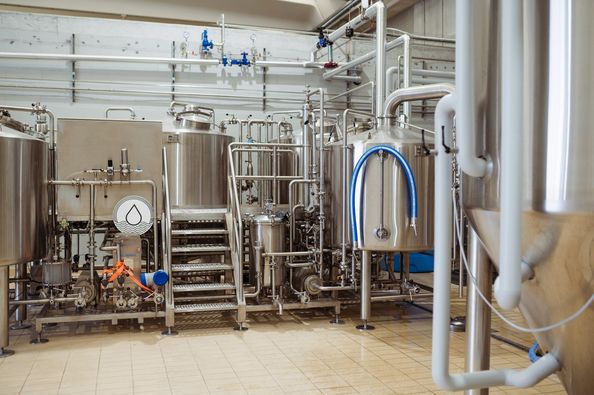
Common Challenges and Solutions in Using Professional Brewing Equipment
Using professional brewing equipment comes with its share of challenges. Let’s explore some common issues brewers may encounter and the corresponding solutions:
Equipment Maintenance and Cleaning
Challenge: Brewing equipment requires regular maintenance and thorough cleaning to ensure optimal performance and prevent contamination. Solution: Establish a comprehensive maintenance schedule and follow proper cleaning procedures. Train staff on equipment maintenance, conduct routine inspections, and invest in professional cleaning equipment.
Recipe Scaling and Consistency
Challenge: Scaling recipes from smaller batches to larger production volumes can be challenging, leading to inconsistencies in flavor and quality. Solution: Implement standardized recipe scaling methods and use software tools to ensure accurate ingredient proportions. Conduct pilot batches and taste tests to validate consistency before scaling up.
Temperature Control and Fermentation
Challenge: Maintaining precise temperature control during fermentation is critical for achieving desired flavors and preventing off-flavors. Solution: Invest in equipment with advanced temperature control systems, such as glycol chillers or precise heating elements. Monitor fermentation temperature closely and make adjustments as needed.
Quality Control and Testing
Challenge: Ensuring consistent quality across batches requires rigorous quality control measures and testing. Solution: Implement quality control protocols, including sensory evaluations, laboratory testing, and feedback loops. Use reliable measurement instruments and conduct regular analysis of key brewing parameters.
Future Trends in Professional Brewing Equipment
The brewing industry continues to evolve, driven by advancements in technology and changing consumer preferences. Here are some future trends to watch for in professional brewing equipment:
Automation and Smart Technology
Automation is revolutionizing the brewing process, enabling brewers to optimize efficiency and quality. Expect to see more automated brewhouses, fermentation control systems, and data-driven brewing software. Smart technology will allow brewers to monitor and control their operations remotely, optimizing workflows and reducing manual labor.
Sustainable Brewing Practices
As sustainability becomes a priority, brewers are embracing eco-friendly practices. Future brewing equipment will focus on energy efficiency, waste reduction, and water conservation. Look for innovations in heat recovery systems, waste treatment solutions, and environmentally friendly packaging materials.
Modular and Portable Systems
Flexibility and mobility are becoming essential for brewers. Modular brewing systems that can be easily expanded or reconfigured will gain popularity, allowing breweries to adapt to changing demands. Portable brewing equipment will cater to the growing trend of pop-up breweries and collaborative brewing events.
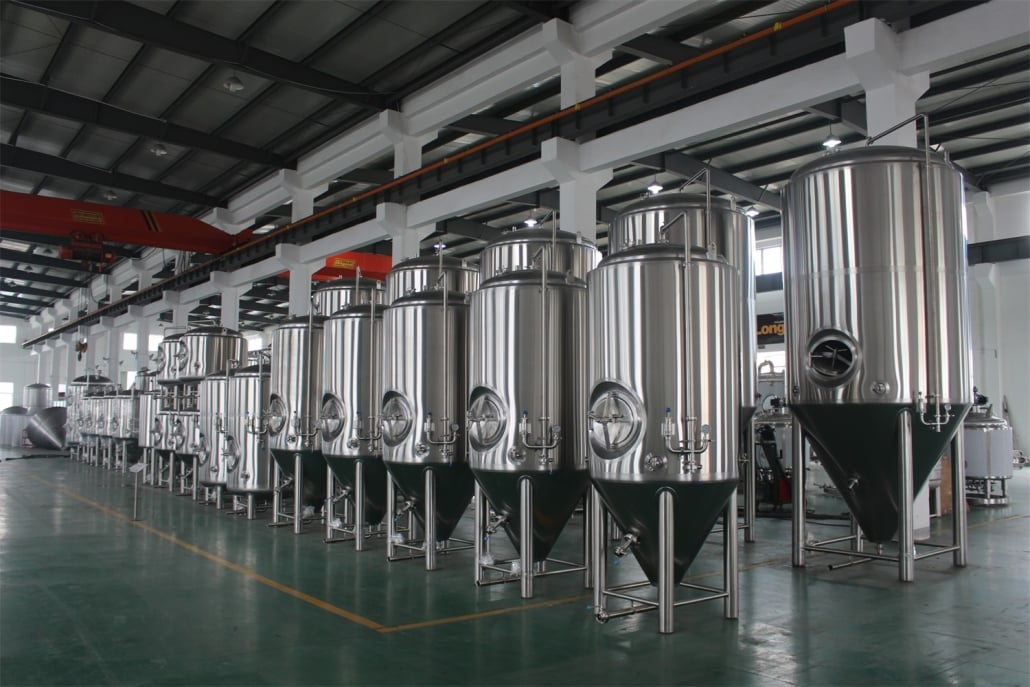
Conclusion
Professional brewing equipment is the backbone of successful commercial breweries. Its importance lies in its ability to deliver consistent, high-quality beer, enhance efficiency and productivity, and ensure safety and compliance. Understanding the key components, types, and factors to consider when choosing equipment is crucial for brewery owners and operators. By staying updated on industry trends and addressing common challenges, brewers can embrace the future of professional brewing and create exceptional beers that captivate consumers.
FAQs
1. How much does professional brewing equipment cost?
The cost of professional brewing equipment varies depending on the size, complexity, and customization options. A small-scale microbrewery setup can start from $50,000, while larger industrial systems can range from hundreds of thousands to millions of dollars.
2. Can professional brewing equipment be customized for specific beer styles?
Yes, many manufacturers offer customization options to accommodate specific brewing techniques and beer styles. You can work with equipment suppliers to tailor the configuration, features, and specifications of the brewing equipment to your unique requirements.
3. Is professional brewing equipment difficult to maintain?
While professional brewing equipment requires regular maintenance, it is designed for durability and ease of use. Following proper cleaning and maintenance procedures, and scheduling routine inspections will ensure optimal performance and longevity of the equipment.
4. How long does it take to receive professional brewing equipment after ordering?
The lead time for professional brewing equipment can vary depending on factors such as equipment complexity, customization requirements, and the manufacturer’s production schedule. It’s best to consult with the manufacturer directly to get an estimated delivery timeline.
5. Are there financing options available for purchasing professional brewing equipment?
Yes, there are financing options available for purchasing professional brewing equipment. Many equipment manufacturers offer leasing or financing programs tailored to the needs of breweries. Additionally, you can explore traditional equipment financing or leasing options through financial institutions specialized in the brewing industry.


